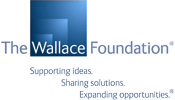Report, Scope, and Content
So, another thought experiment: To what extent do you believe that the public demand goal espoused by this RAND report can be reached faster or more efficiently without public education in the arts disciplines on a significant scale? For example, would subsidizing admission fees, raising expenditures on advertising exponentially, pushing the arts as a brand throughout all education without worrying about arts discipline content, relying heavily on political symbolism, promoting friend-to-friend marketing, etc. be more effective short- or long-term? In other words, to what extent and in what areas are RAND's recommendations wrong? As you think about this, please consider the following two paragraphs.
Whatever your answer, many professionals with high levels of arts education, training, and commitment are going to continue teaching the arts to the public from their various disciplinary perspectives, including performance, to as many people as possible. These professionals serve as instructors in community schools of the arts, private teachers of the arts, arts specialists in public and private schools, professors leading collegiate arts courses for majors in non-arts fields, and usually supplementing sequential education, the educational staffs of art museums, theatres, opera companies, etc., arts critics and writers, and artists who teach part time. Richard Kessler's term "evergreen" is credible because of the work of these professionals over many decades. While reports, projects, and meetings come and go, funding is fickle, and the hockey puck with the "latest thing" written on it moves from place to place, these folks remain at their tasks. There are tens of thousands of them, and to one extent or another, each group of them is organized. In an overall sense, each group knows what to do, and members work at getting better all the time.
Whatever your answer, success with the RAND report goal in any given situation still depends fundamentally on specific choices about content, whether you want to base the effort in formal education or not, or even if you want to marginalize education altogether.
Thanks to Jane Remer for urging realism about prospects for educational planning on a grand scale. The RAND report proposes state and local efforts to help the professionals in paragraph three above to work with greater synergy where they are. For me, the best next steps would be working on ways to make this happen, ways that improve conditions long term and avoid threatening the fragile existence of delivery systems critically important to the mix.
About
Our Bloggers
Sam Hope, executive director, The National Office for Arts Accreditation (NOAA);
Jack Lew, Global University Relations Manager for Art Talent at EA;
Laura Zakaras, RAND;
James Cuno, Director, Art Institute of Chicago;
Richard Kessler, Executive Director, Center for Arts Education;
Eric Booth, Actor;
Midori, Violinist;
Bau Graves, Executive director, Old Town School of Folk Music;
Kiff Gallagher, Founder & CEO of the Music National Service Initiative and MusicianCorps
Bennett Reimer, Founder of the Center for the Study of Education and the Musical Experience, author of A Philosophy of Music Education;
Edward Pauly, the director of research and evaluation at the Wallace Foundation;
Moy Eng, Program Director of the Performing Arts Program at The William and Flora Hewlett Foundation;
John Rockwell, critic;
Susan Sclafani, Managing Director, Chartwell Education Group;
Jane Remer, Author, Educator, Researcher
Michael Hinojosa, General Superintendent, Dallas Independent School District
Peter Sellars, director
Contact us Click here to send us an email... more
Peter Sellars on Creativity & the Voice more

Leave a comment